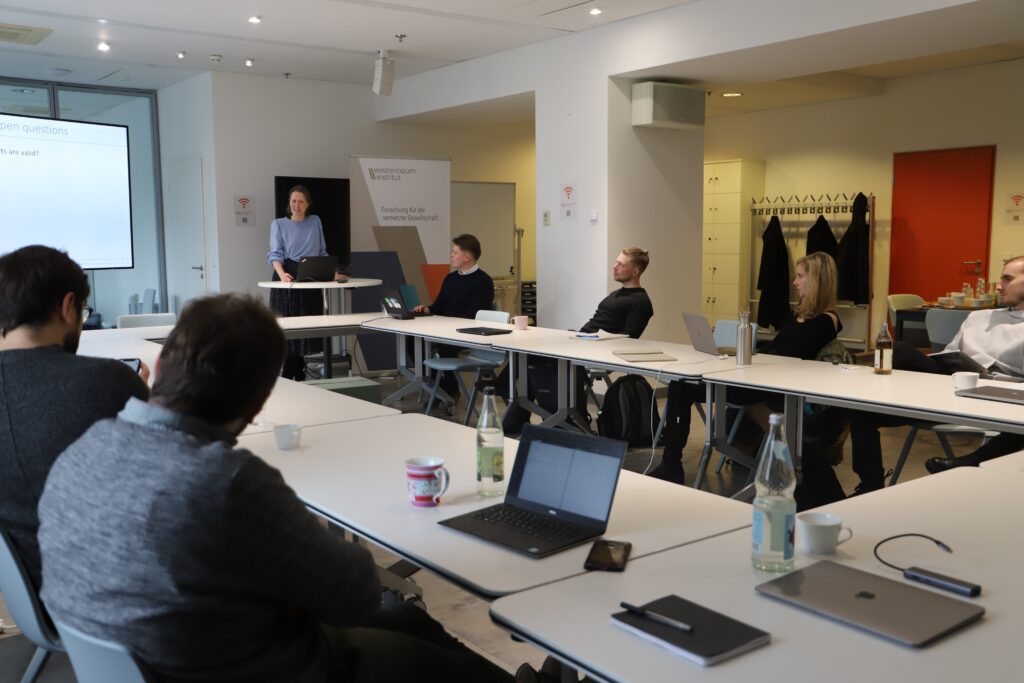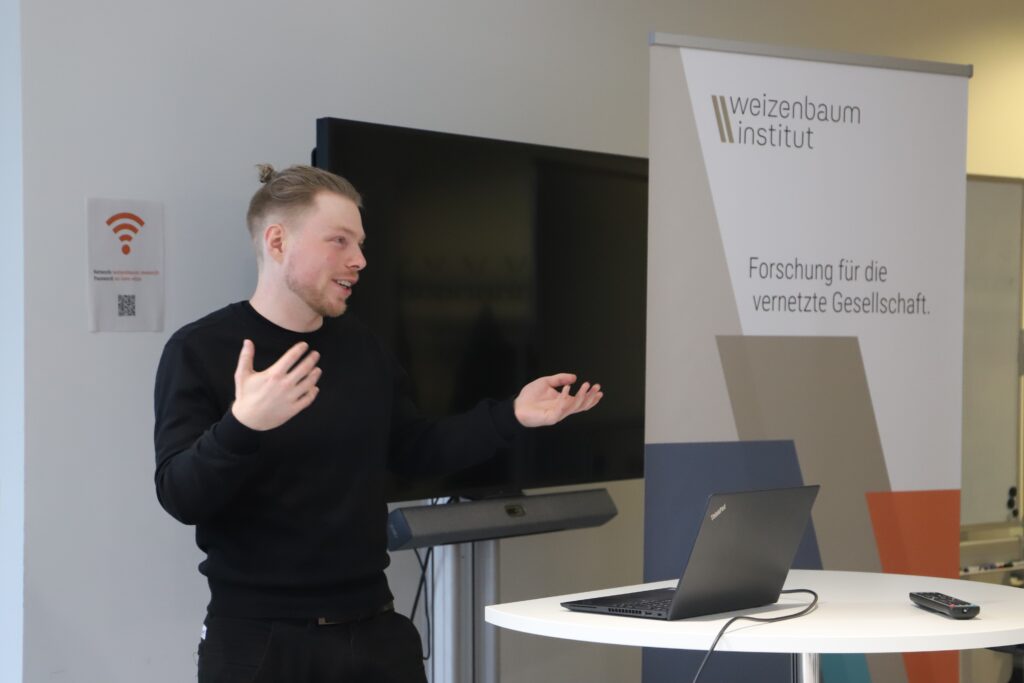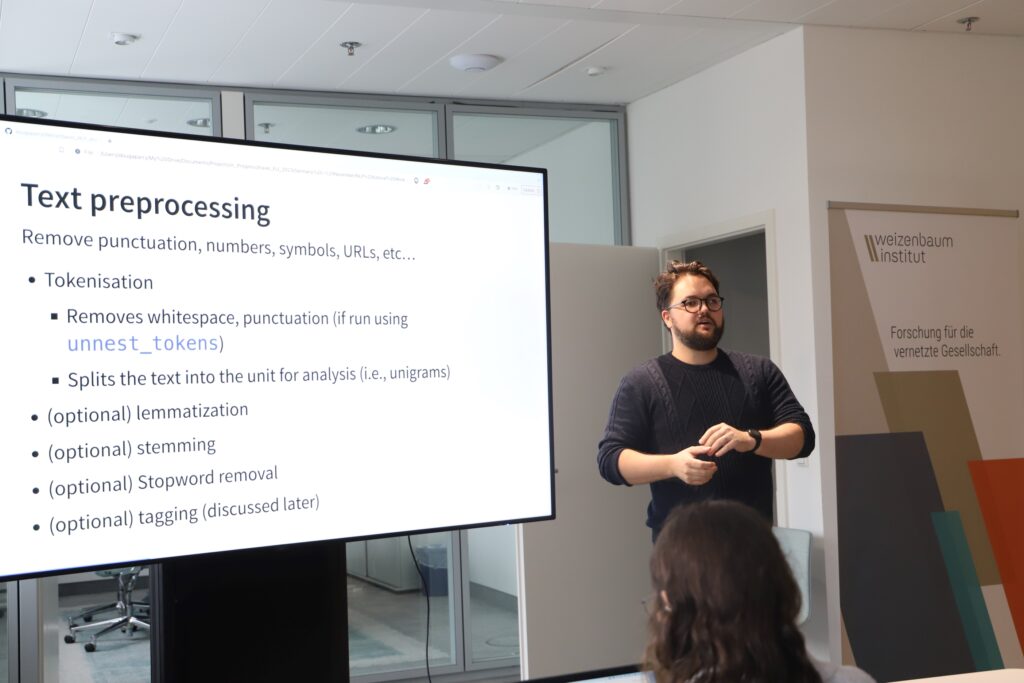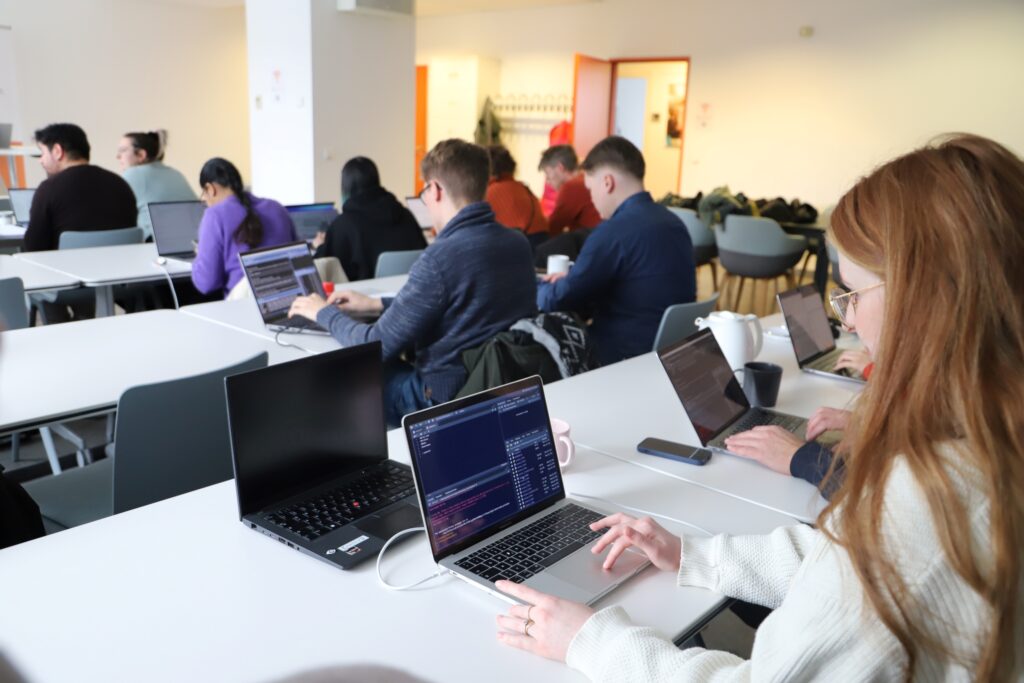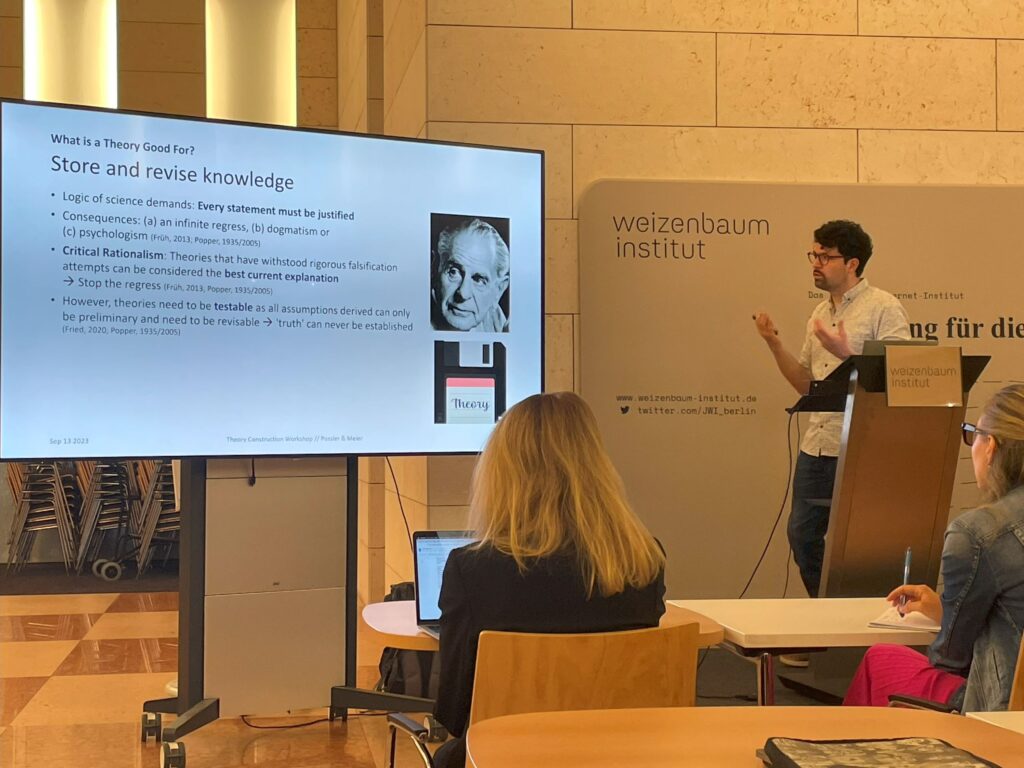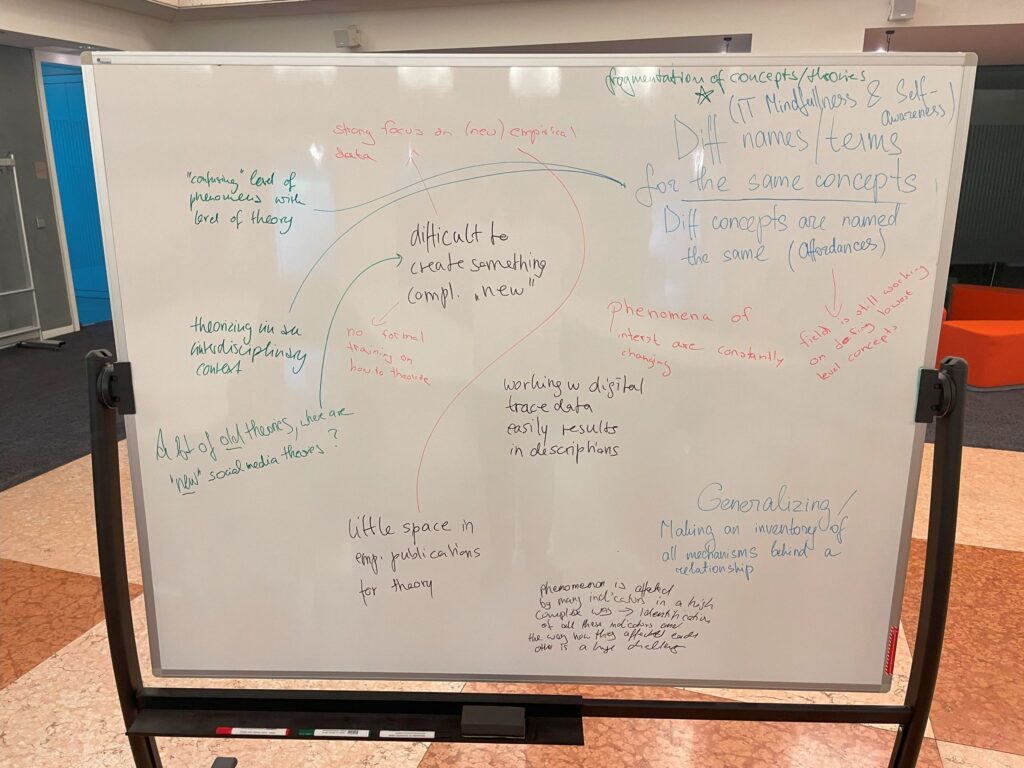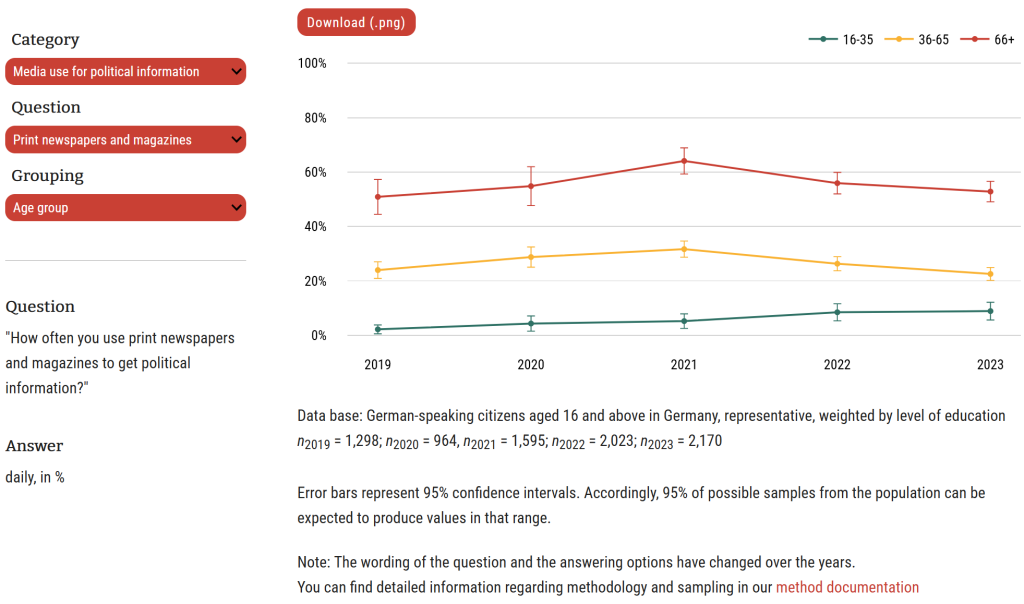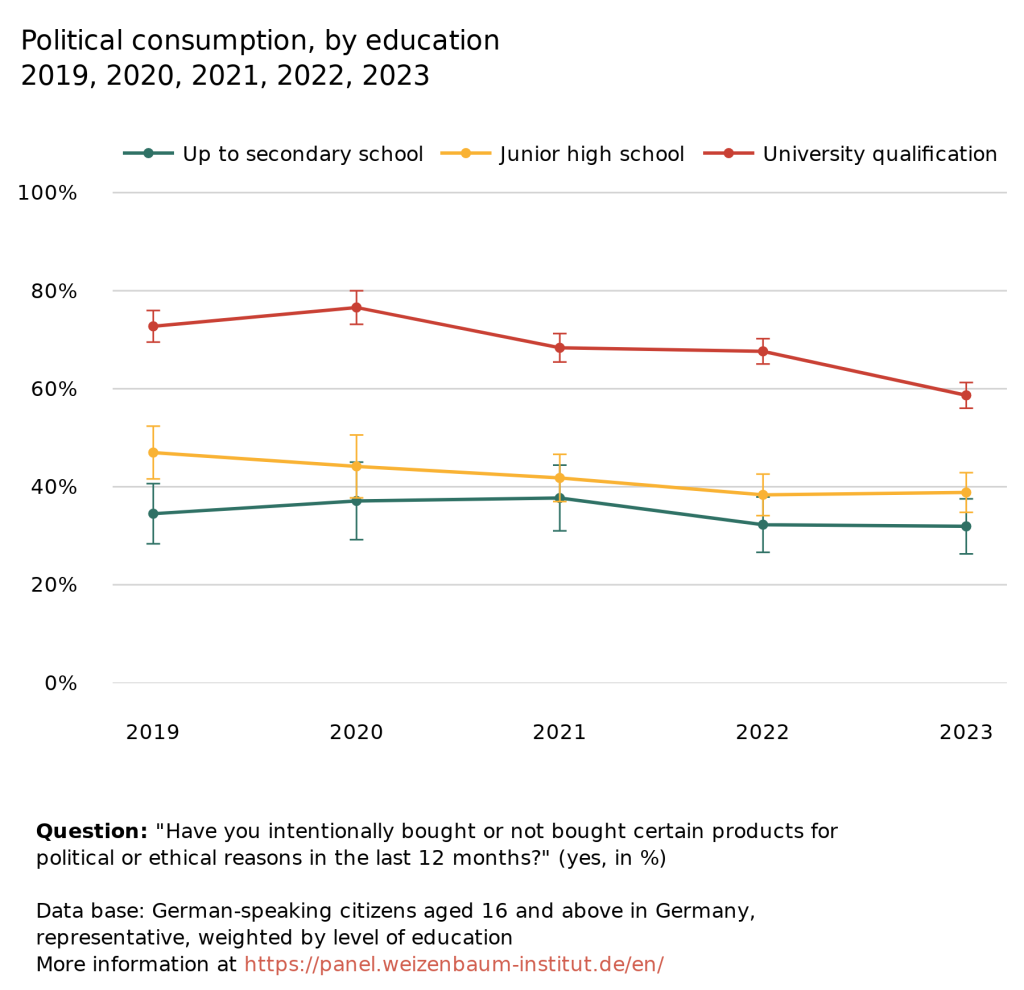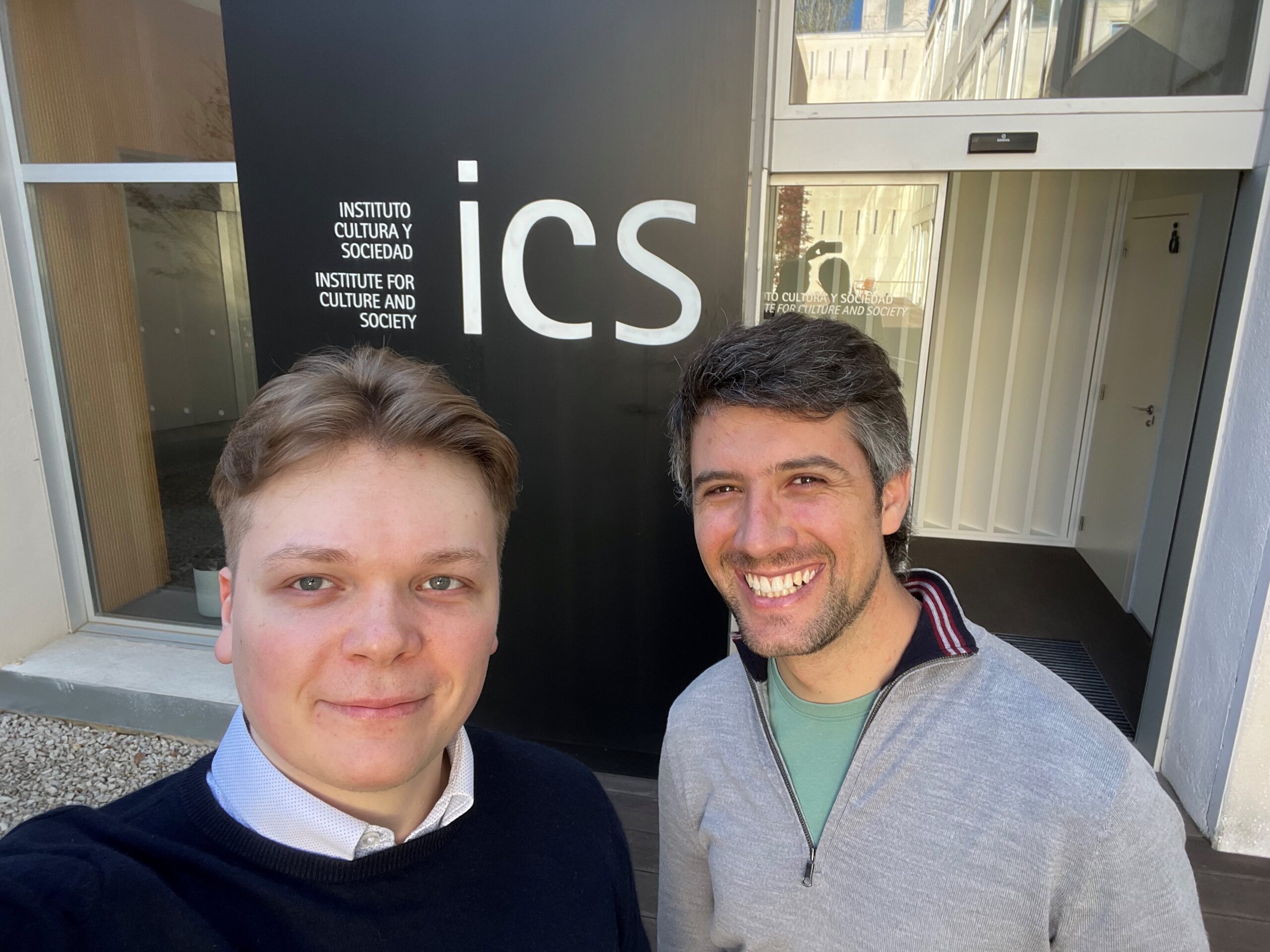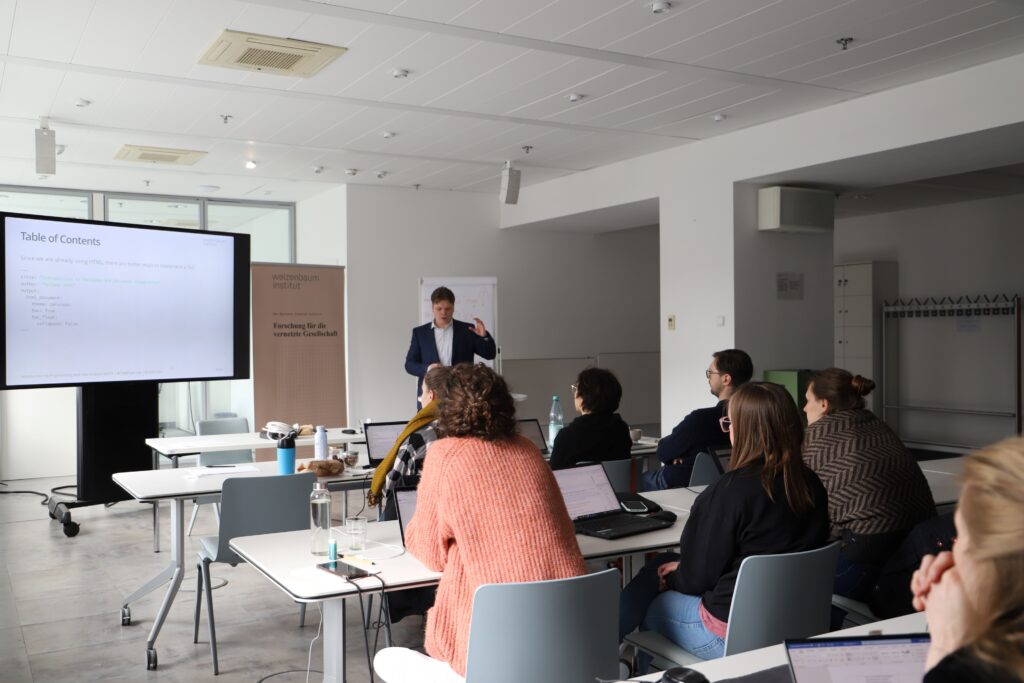On September 3 2024, Tobias Dienlin from the University of Vienna held the workshop Open Research – Principles, Practices, and Implementation at WI. In this workshop, he gave an overview of Open Research and its motivations, relevance, and formal and technical implementation.
In the first part of the workshop, Tobias argued that certain problems and values in science are the main reasons why researchers should practice Open Research. The problems included the replication crisis (a lack of or low quality of replication studies, especially in the social sciences), questionable research practices (p-hacking, HARKing, errors), and publication bias (journals prefer exciting, expected, and significant results). The values in question included openness as a foundation of science itself and the dedication to scientific advancement instead of emphasizing individuals that achieve it.
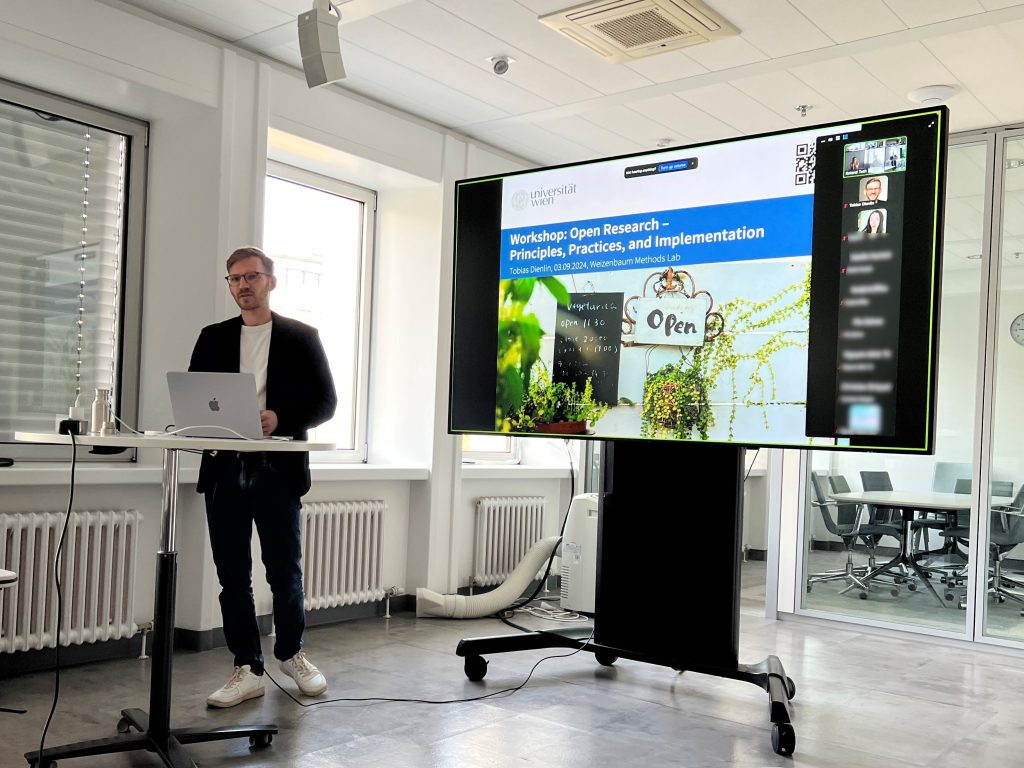
In the second part, the formal practices of Open Research were discussed. Tobias first clarified the differences between the terms Open Science, Open Research, and Open Scholarship. To achieve a culture of Open Research, he suggested aiming for open access, pre-/post-printing, open reviews, author contribution statements, open teaching, and citizen science. While these practices ususally require additional work, the burden can be lowered by already considering and preparing them in the initial stages of a research project. For instance, by implementing two of the most important Open Research practices: Preregistrations and registered reports.
- In a preregistration, any details of a study that are already fixed (e.g., theoretical foundation, research questions, hypotheses, analysis methods, …) are published before conducting the study itself. After conducting the study, the preregistration is referred to in the manuscript, and possible deviations from it are explained. This procedure reduces the possibility and risk of p-hacking and HARKing, and under specific circumstances a preregistration can even take place after the data have already been collected.
- A registered report is a more elaborate version of a preregistration. It consists of all parts of a submission that do not involve the analysis and the results. The submission can therefore be reviewed before the data and results even exist. This way, reviewers are not influenced by results and publication bias can be avoided. While a preregistration can be published anywhere, the registered report format needs to be offered by the journal itself.
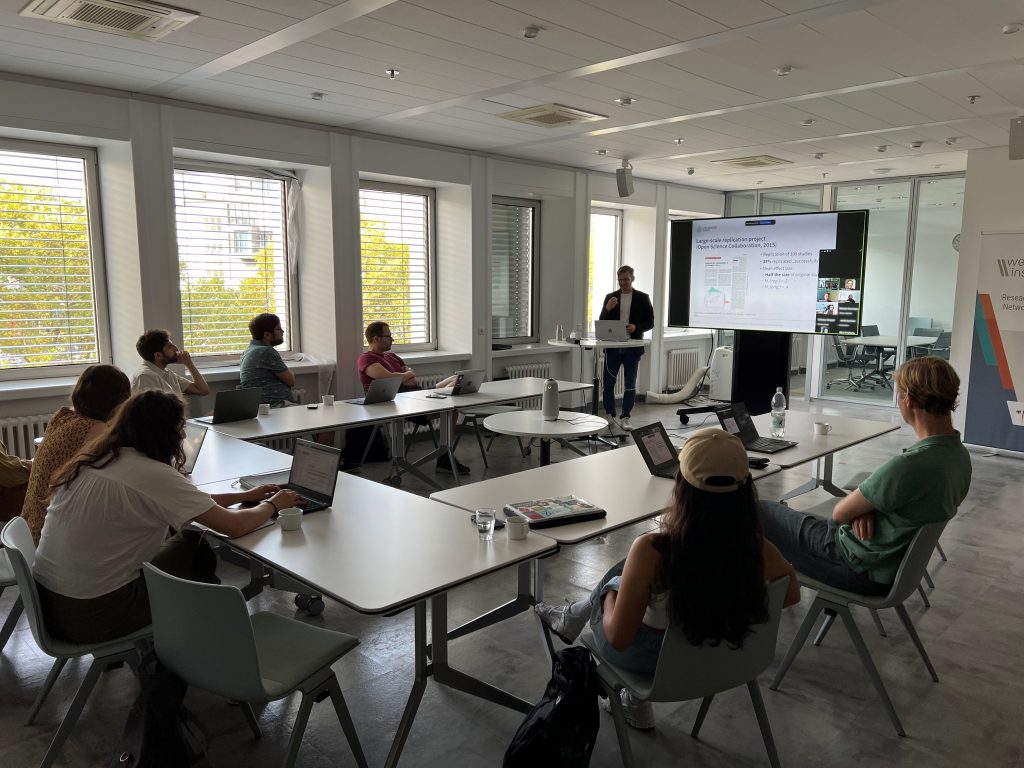
In the last part of the workshop, the focus was on tools and software that help implement Open Research practices. For example, the free-to-use repository OSF can be used for pre-/post-prints, preregistrations, and online supplementary materials such as data, analysis code, or questionnaires. As an exercise, Tobias gave participants the opportunity to implement a basic preregistration or registered report on OSF for a research project they were working on already and try different features, such as linking it to a repository on GitHub. After summarizing the insights of the workshop, Tobias concluded by showing a fitting statement:
Open Science: Just Science Done Right.
During the workshop, participants had plenty of space to ask questions, discuss with everyone or in separate breakout rooms, and interact in various ways. We would like to thank Tobias for this insightful workshop and strongly encourage the implementation of Open Research.
